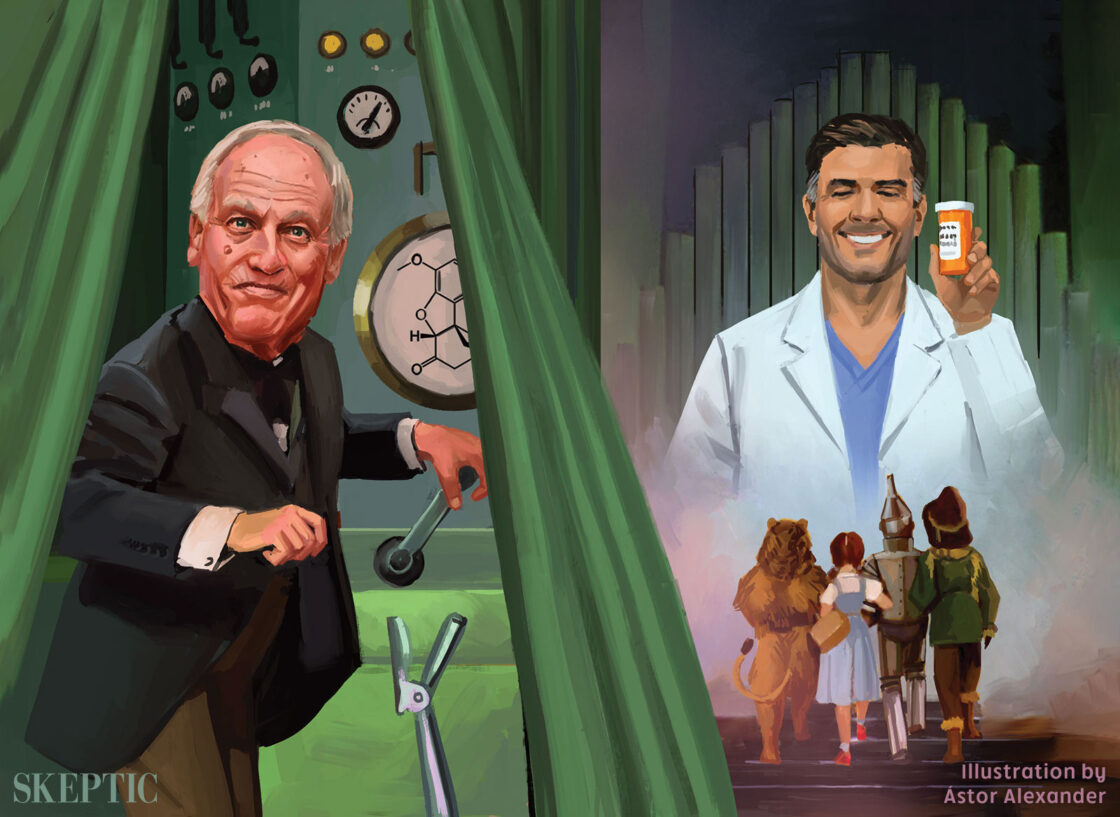Imagine an intelligent bat contemplating the mind-body problem, name of Tim Nigel.1 Nigel has noticed that humans have an auditory sense not possessed by bats (of his species): they can hear various pitches. This enables them to appreciate music (unlike Tim and his conspecifics) and also to have other types of auditory experience not available to bats. We can suppose that bats hear only a single pitch and only echoes of their own monotone shrieks, impressive though their sense of echolocation is. Thus Nigel concludes that he doesn’t know what it is like to be a human, at least so far as hearing is concerned. He has some inkling, to be sure, because he does have an auditory sense, but the range and variety of human hearing makes this sense alien to him—just as humans have an auditory sense that provides only partial insight into the auditory sense of bats. He thinks that if he could hear pitch variations in the manner of humans, then he would know (fully) what it is like to be human; but as things stand he cannot grasp the nature of human experience. This is a region of reality he cannot get his mind around (Nigel is a resolute metaphysical realist). He expresses his conclusion by saying that human experience is “subjective” and can only be grasped “from a particular point of view”, in contrast to “objective” things that can be grasped “from many points of view, i.e. from no specific point of view”.
Having come to this conclusion he notices an implication for the mind-body problem, namely that experiences like those of humans cannot be reduced to physical facts about the human body and brain. For such physical facts can be grasped from many points of view and don’t require that one shares the point of view of the organism having the experience. Tim can know what it is to be a human, i.e. to belong to the human biological species, but he can’t grasp what it is like to belong to the psychological type exemplified by humans, i.e. beings sensitive to pitch differences. But that means that it is not possible to analyze experiences as physical states, because the former are subjective and the latter objective. He has uncovered a feature of mental concepts that renders them incapable of analysis into physical concepts. Tim’s inability to know what it is like to be a human thus leads him to reject materialism.
The essential point of his reasoning is the contrast between concepts of experience and concepts of the physical world—the point, namely, that the former are accessible only to beings that share the experience in question while the latter are not dependent in this way. You can know what it is to be a member of the human species without yourself being of that species, but you can’t know what it is like to have human experience without having that kind of experience. And you can grasp the properties of a human brain without yourself having that kind of brain, but you can’t grasp the experiential properties with which these brain properties correlate without having those properties yourself.
That is what Tim Nigel concludes from his reflections on human experience (and which he publishes a paper on with the title of the present paper—which quickly becomes classic of bat philosophy). I would like to rephrase the gist of his argument in a way that brings out its logic more clearly than in Nigel’s original formulation (not that there’s anything wrong with it!). Instead of talking about subjectivity, objectivity, and points of view, I shall say that the relevant feature of (concepts of) experience is self-acquaintance dependence (SAD). The term needs some unpacking. We are familiar with the idea of concepts that depend for their possession on acquaintance with members of their extension—it is a cornerstone of empiricism. Thus it may be said that the concepts red and square are acquaintance-dependent—you have to experience red and square things before you can have these concepts. Putting aside the plausibility of that position, we know what it means; well, the present idea is that certain concepts require for their possession acquaintance with instances of the property in oneself. That is, you have to be aware of the property as instantiated by you if you are to have the corresponding concept.
So to have a concept of a certain type of experience you have to be acquainted with instances of that type in your own person: for example, you can only have the concept of an experience of red if you have yourself had experiences of red. You have to be an instance of the general property the nature of which you aspire to grasp. Such a property is what I am calling self-acquaintance dependent: you can grasp it only if you are acquainted with it in yourself. Thus for Tim Nigel the concept of pitch perception is SAD: it requires him to have a certain type of experience that he doesn’t possess. He can’t grasp human auditory experience because he lacks that type of experience, while he can grasp what it is to be human (i.e. that biological species). He can grasp the nature of P-fibers in the human brain but not the type of experience these fibers underlie. Thus experiences can’t be brain states since the former concepts are SAD while the latter are not. The argument is by Leibniz’s law: experiences have a property that brain states don’t have, viz. self-acquaintance dependence of the relevant concepts.
Having got this far the astute Nigel wonders whether his argument generalizes: are all mental states SAD? He concludes that they are, since it is not possible to grasp what these states involve unless you yourself share them—emotions, memories, thoughts, bodily sensations, desires, volitions, etc. It is true that, like perceptual experiences, all these phenomena have non-SAD aspects: neural correlates, functional properties, non-mental causes and effects, number and duration. But these aspects don’t exhaust their nature, which always has a bit of SAD in it. For example, how could you know—fully know—what anger is if you had never been angry? How could a non-thinking being know what thinking is? How can memory be fully grasped if you have never remembered anything? Moreover, Nigel concludes, no other types of concept are SAD: only mental concepts depend for their possession on instantiating them oneself—not mathematical concepts or moral concepts or color concepts or shape concepts or aesthetic concepts. SADness is the mark of the mental (cf. intentionality or privacy or rationality).
So, at any rate, Tim Nigel contends in his famous paper “What is it like to be a Human?”, and his argument seems clear enough. ![]()
Note
- For the uninitiated this paper takes off from Thomas Nagel’s famous 1972 paper “What is it like to be a Bat?” My purpose is expository: to rephrase Nagel’s argument so as to bring out its structure.
Related Material
Listen to Science Salon # 29 — a conversation between Michael Shermer and philosopher Colin McGinn about his public criticism of Shermer’s latest Scientific American column on the mysteries of consciousness, free will, and God.
This article was published on July 16, 2018.

















McGinn’s article essentially treats “grasping” as a binary concept; either you do or you don’t. This ignores completely that we have both imagination and empathy; we can try to imaging what another being experiences, and empathize with the results. While it is unlikely that we will achieve 100% success, we can find value in making the effort, whereas he seems to contend that there is no value in partial success.
Also, this is a slippery slope, as his concept is readily extended to other groups of people as well as other species. One could argue that it is impossible to grasp what is is like to have grown up in another country, to be born with a disability, or to be a slave. Again, we can most likely not achieve a complete grasp of what people in these situations experience, but it is vital to the advancement of civilization that we try.
Dan, you’re not missing the point at all – or rather, you may be missing McGinn’s point but only because McGinn’s point is wrong. Where he goes wrong is here: ‘Thus experiences can’t be brain states’.
Experiences *are* brain states – psychology worked that out long ago and neuroscience has since confirmed it incontrovertibly. The bat’s experience is happening physically inside the bat’s brain; the human’s experience is happening physically inside the human’s brain. The fact that the bat brain cannot sustain the same experience as the human brain, and vice versa, does not at all imply that either experience isn’t a brain state.
McGinn wants to add a non-physical (possibly metaphysical) quality to experience, but there is no scientific justification for doing so. The underlying problem is that he is trying to apply philosophy to a scientific question. If philosophy can’t make sense of the reality that science has uncovered, that is a problem with philosophy – reality won’t change to conform to a philosophical argument.
This leaves me wondering why you can’t just include the experience as part of the physical system? Experiencing things has a physical effect on the brain, doesn’t it?
Neurons form, grow, shrink, pathways are reinforced, etc… Is the argument just that experiencing red squares doesn’t in any way physically change the brain, so having a concept of the experience can’t be captured by a physical representation of the brain?
This seems silly, so maybe I’m really just missing the point. Perhaps because I haven’t experienced the point myself :)
I think he’s saying a bit more than that, although simpler examples are at hand.
Someone who is red-green colourblind can have no idea what it feels like to see the world in three-colour vision, however complete their knowledge may be of wavelength sensitive photosensors and how they report to the brain. So full knowledge of a physical system (my brain as I see things with my three colour vision) is not the same as full knowledge of my sensations when I see them. Therefore my sensations are something over and above the physical system.
That I think is what Nagel has made a career out of. I also think it’s nonsense, but I can’t say why.
Am I missing something? The author seems to be introducing the concept of SAD, but does nothing with it. I think SAD is self-evident; ignoring the fact that bats do have variable pitched echo location and can “chirp” to each other in the human hearing range, it seems obvious that they could not grasp human experiences any more than we could grasp bat experiences. Moreover, even though he says the concept “red” is objective (ie red is a specific range of light wavelengths), I cannot “know” what your experience of “red” is. We agree that this ball is red, for example, but there’s no way to compare our internal experience of redness. Seems McGinn is just stating that we don’t understand consciousness.
So I guess I don’t understand the purpose of the article!